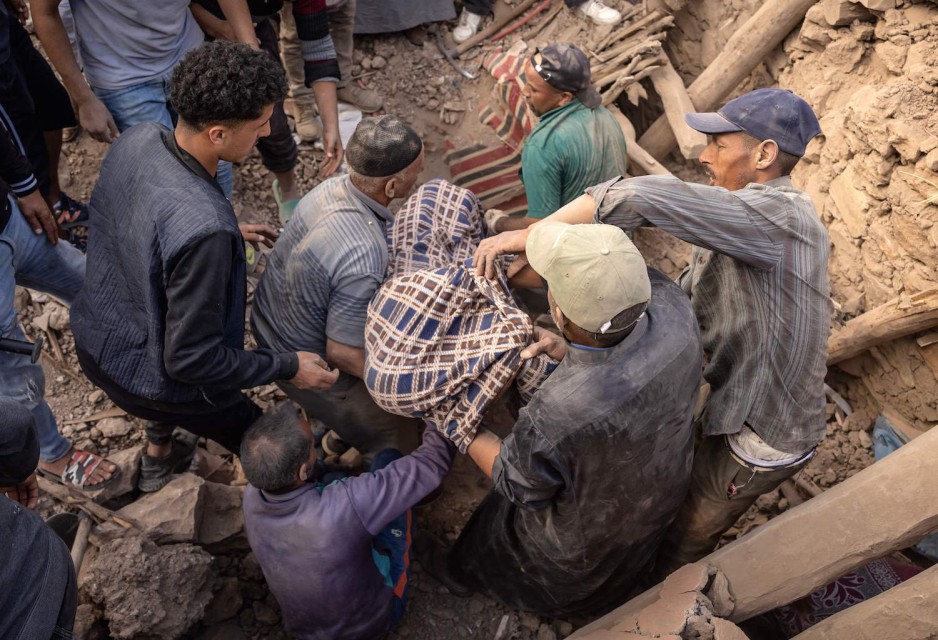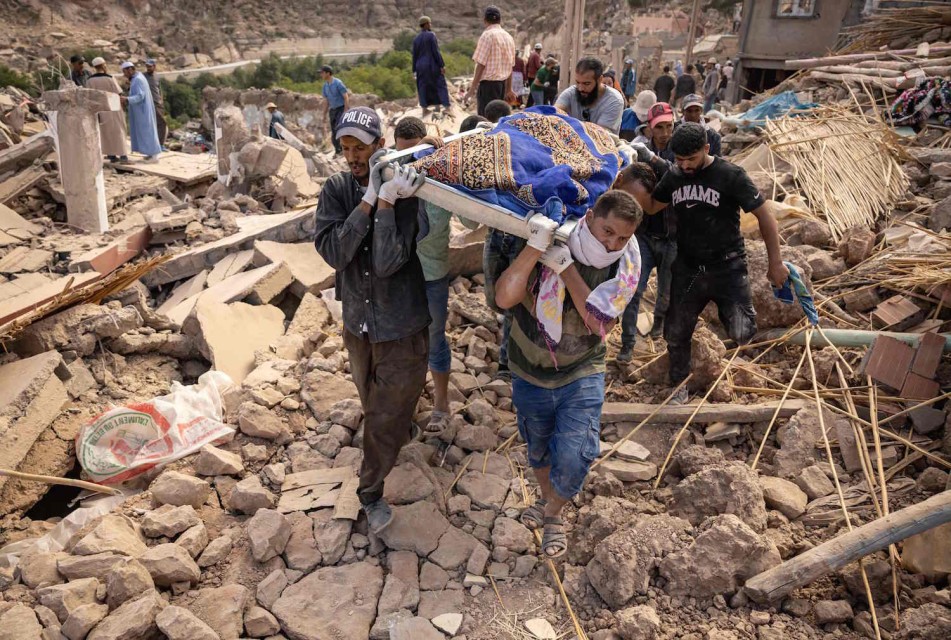
PARIS, Sept 11, 2023 (AFP) – France is insisting that the reluctance of Morocco to accept French offers of aid in the wake of Friday’s devastating quake does not represent a snub, even if it comes at a time of growing tensions between Rabat and the former colonial power.
Along with the United States, France was conspicuously absent from a list of four countries Morocco said on Sunday it would seek aid from — Britain, Qatar, Spain and the United Arab Emirates.
The apparent refusal of Rabat to call on Paris has sparked astonishment among some aid groups, given that widespread use of French in Morocco could ease distribution and also considering France’s reputation for technical expertise in the sector.
The earthquake killed nearly 2,500 people according to Moroccan authorities.
Arnaud Fraisse, head of the Secouristes sans Frontieres (Emergency Responders Without Borders) organisation, told the France Inter broadcaster that aid workers had hoped to get on a flight to Morocco on Sunday.
“Unfortunately we still don’t have the go-ahead from the Moroccan government,” he said, adding that he did not understand the reason for this “blockage”.
France’s relationship with Morocco is not nearly as traumatic as with neighbouring Algeria. But as in any post-colonial relationship, Morocco, which won independence in 1956, has its grievances with France.
Foreign Minister Catherine Colonna told broadcaster BFM TV on Monday that Paris had pledged five million euros ($5.4 million) to aid organisations already on the ground in Morocco.
Asked why Morocco had accepted additional aid and support to be flown in from the four other countries, but not France, Colonna said “this debate is inappropriate”.
Morocco is “sovereign” and “alone entitled to determine what its needs are”, she said.
“People are suffering. People need help,” she said.

– ‘King Mohammed VI’s diplomacy’ –
But for Pierre Vermeren, French historian and professor at the Sorbonne University, it is however a “clear political sign”.
“We know the diplomacy of King Mohammed VI,” he told AFP. “He likes to send messages, make swipes, to indicate when he is angry”.
Mohammed VI was in France, a country he regularly visits, when the earthquake struck late on September 8, according to Le Monde daily, although by Saturday he was already back in the country to chair an emergency meeting.
A planned visit by Macron to Morocco has still to be confirmed, and Morocco’s ambassador post in France has been empty for months.
The most immediate bone of contention has been a decision by France at the end of 2021 to halve the number of entry visas granted to Moroccans annually.
President Emmanuel Macron’s decision to seek a rapprochement with Algeria has also alarmed Rabat, which has long seen its giant neighbour as its main regional rival.
The conflict in Western Sahara — that has pitted Morocco against the Sahrawi independence fighters of the Polisario Front, supported by Algeria, for more than 40 years — has also fuelled tensions.
– ‘Lasting build up of tensions’ –
Rabat wants France to recognise Moroccan sovereignty over Western Sahara, like the United States, but France’s position has not budged — to Rabat’s chagrin.
Former French foreign minister and prime minister Dominique de Villepin told Franceinfo radio that the earthquake had happened at a time of “strong tensions” between France and Morocco and that relations were “difficult”.
“We have never known such a lasting build-up of tensions,” he said.
“We have to be humble,” he added. “It is important for France to put its flag in its pocket,” he said, suggesting that French aid could go in via the European Union.
Vermeren said that the earthquake tragedy could be a chance for Paris and Rabat to “find a common language”, adding that the “quarrel cannot last another four years.”








